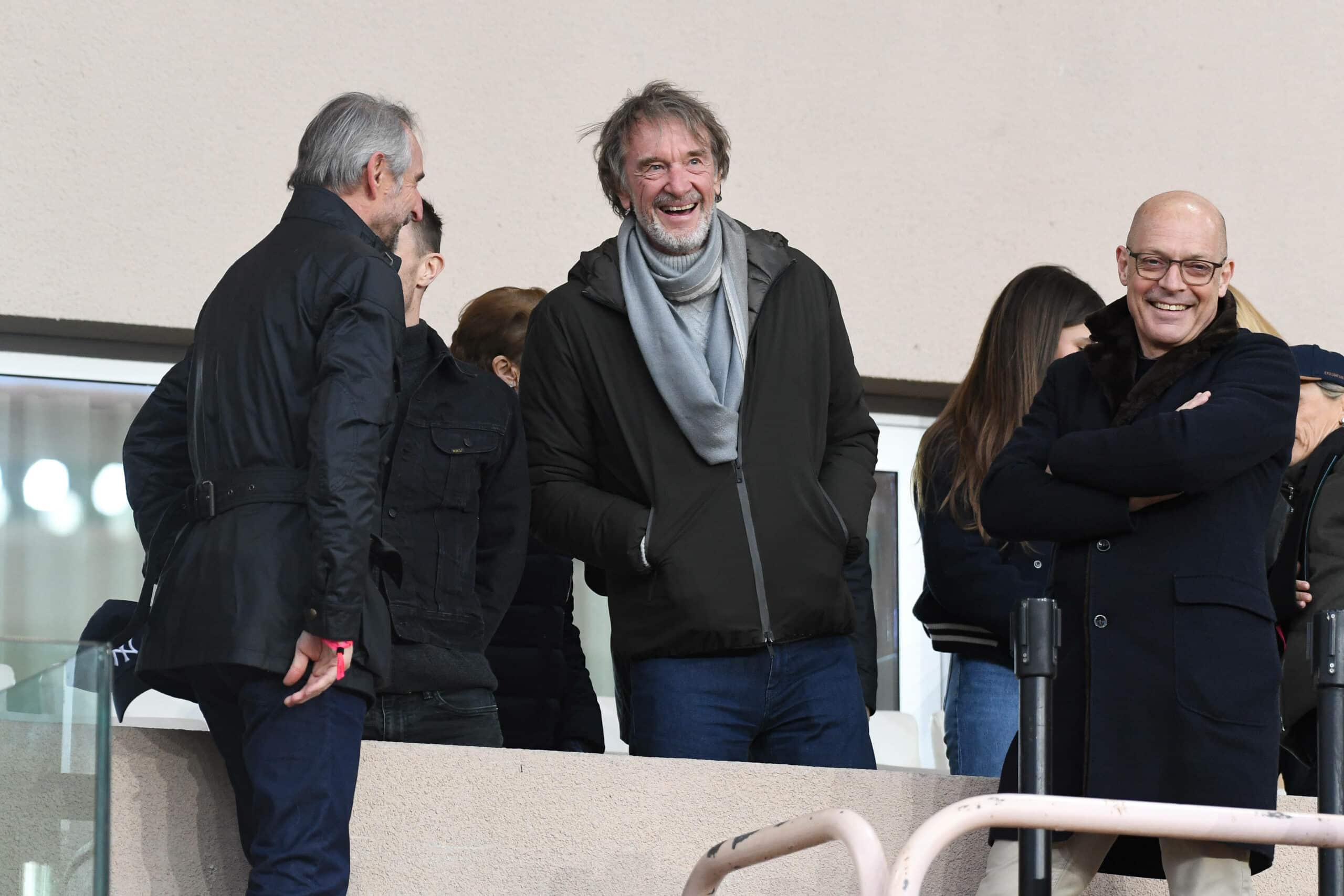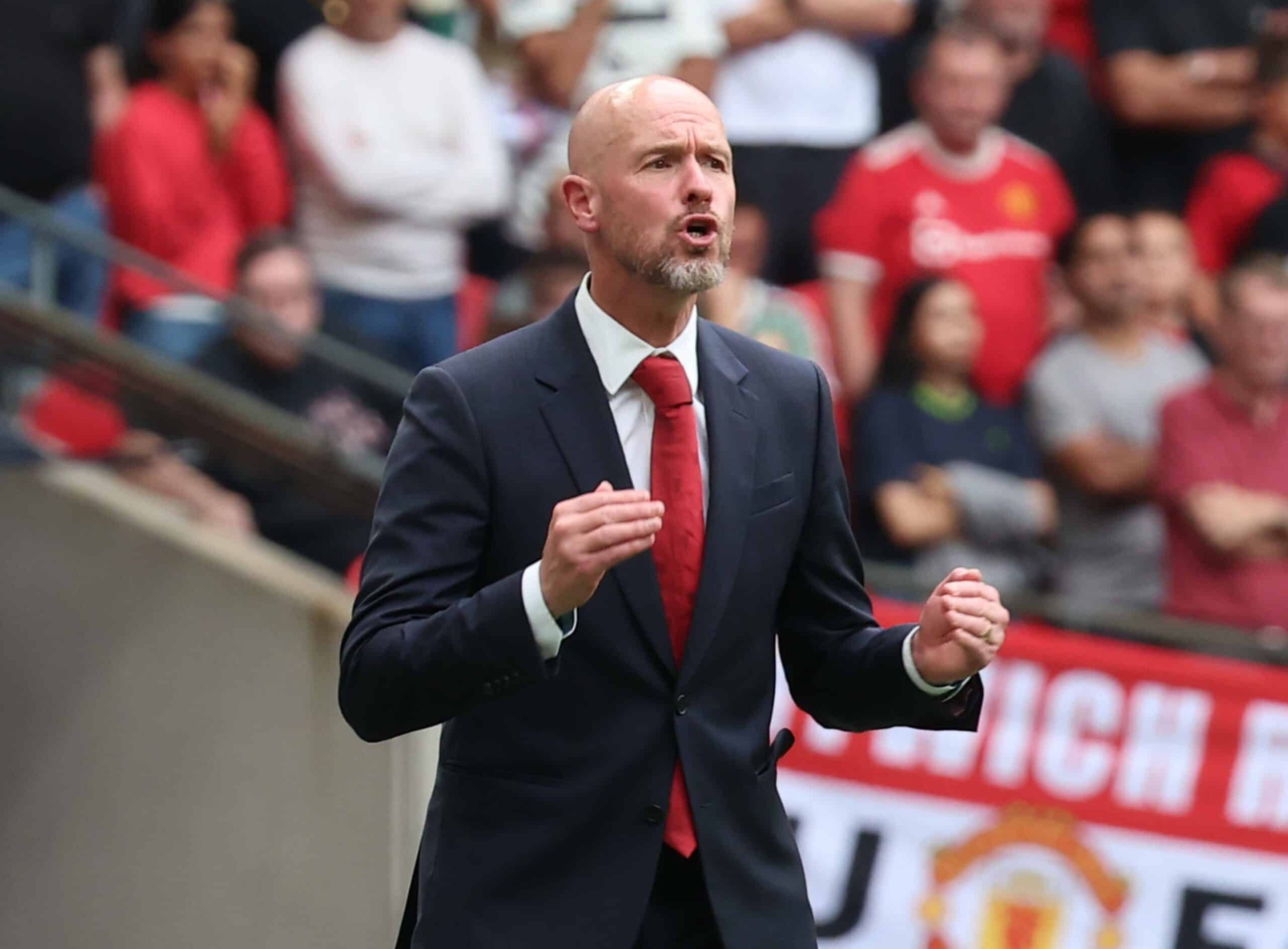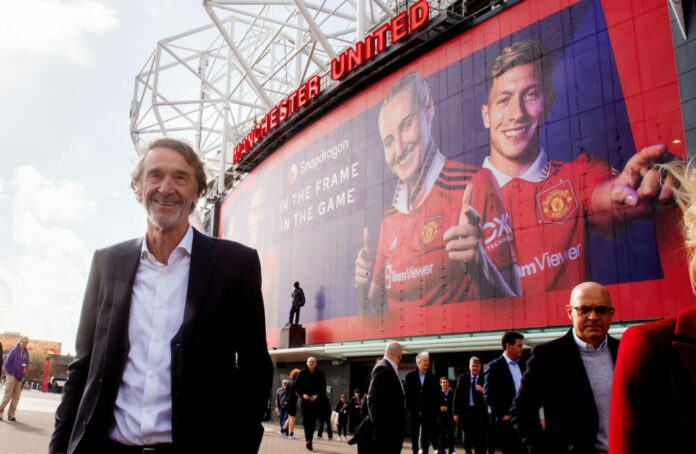Pressure Mounts on Jim Ratcliffe as Manchester United Faces Leadership Challenges
When Sir Jim Ratcliffe purchased a minority stake in Manchester United, there was immense excitement among the club’s supporters. A visionary leader known for his success in multiple sports sectors, Ratcliffe promised to restore the club to its former glory. But as he enters his first full season at the helm of Old Trafford, it seems Ratcliffe is beginning to understand the monumental task ahead. In a recent report by ESPN details the pressure on both Ratcliffe and head coach Erik ten Hag is increasing as the Red Devils grapple with poor results and critical decisions regarding their leadership.
Erik ten Hag Under Fire
Three months into the current season, Manchester United finds itself struggling in 14th place in the Premier League table—a far cry from the lofty expectations set by fans and pundits alike. The team’s results have been disappointing, and ten Hag’s position is under significant scrutiny. A recent seven-hour board meeting held in London ended without clarity on the manager’s future, leaving fans anxious about the direction of the club. The Dutchman, initially hailed as the man to return United to the top, now faces mounting pressure as he fights for his job.

Ratcliffe’s role in these decisions is key. Having spent £1.25 billion to acquire a minority stake in the club from the Glazers in February, he now controls Manchester United’s football operations. However, his decision to cut ties with Sir Alex Ferguson as a £2m-a-year ambassador has been heavily criticised. The fallout from this move has only added to the tensions surrounding United’s leadership.
As ESPN reported, Ferguson’s removal has caused significant unrest among former players and staff. Eric Cantona, a club legend, was quoted saying, “The move showed a lack of respect.” Cantona’s sentiments are echoed by several unnamed sources who feel Ratcliffe is “ripping the soul out of the club.” These feelings of disillusionment have only served to amplify the anxiety among United’s fanbase, who are now questioning whether Ratcliffe can lead the club back to success.
The Search for a Golden Future
When Ratcliffe acquired his stake in Manchester United, he painted a golden future—one in which the club would dominate not only English football but also the European and global stages. However, the reality of turning around one of the world’s biggest football clubs has proven to be more challenging than he might have anticipated. With 13 Premier League titles to their name, the club is now languishing in the bottom half of the table, far from where they believe they should be.

INEOS, Ratcliffe’s petrochemical company, is known for its investments in a wide range of sports, including cycling, sailing, and Formula 1. The company has a track record of transforming teams and pushing for excellence, but success at Manchester United has been slow to materialise. The early signs of Ratcliffe’s tenure have not inspired confidence, with many questioning whether the golden future he promised is achievable in the short term.
One area that has drawn attention is Ratcliffe’s decision to bring in Sir Dave Brailsford, the man behind the theory of marginal gains that made Team GB’s cyclists the dominant force in their sport. Brailsford’s belief that finding the extra 1% can make the difference between winning and competing is well-documented, and his expertise is highly regarded. However, football is a different beast from cycling, and while Brailsford may seem like a perfect fit on paper, the early results suggest that marginal gains may not be enough to turn Manchester United around.
Internal Tensions and Staff Cuts
Ratcliffe’s leadership has not only affected the team’s on-pitch performance but also the internal workings of the club. In an effort to streamline operations and cut costs, 250 jobs have been axed at the club, and the use of corporate credit cards has been restricted. These changes have not gone unnoticed by the players or the fans. A source close to the club told ESPN that senior players were left “underwhelmed” by the impact INEOS has had, with some feeling that Ratcliffe’s changes have not addressed the core issues affecting the team’s performance.
One of the most contentious decisions has been to let go of long-serving staff members, many of whom had been with the club for decades. ESPN highlighted one particularly emotional moment when a member of the ground staff, who had been with the club for over 30 years, was made redundant. According to the report, the staff member was left sweeping up on his final day, tears in his eyes, with no acknowledgment of his service from the club. “It felt as if Ratcliffe had ripped the soul out of the club,” one former player told ESPN.
These decisions, aimed at reducing the workforce to a similar size as Real Madrid’s, have been met with outrage from fans and staff alike. Many feel that while cost-cutting measures are necessary, they should not come at the expense of the club’s identity and values. Ratcliffe’s approach has left many questioning whether his leadership is truly in the best interest of the club.
Looking Ahead: Can Ratcliffe Deliver?
The challenges Ratcliffe faces are monumental. As Manchester United heads into a crucial Premier League fixture against Brentford, the team’s performance on the pitch will be under intense scrutiny. Ten Hag, already on thin ice, must find a way to turn things around quickly or risk losing his job. But the question remains: can Ratcliffe and INEOS deliver the results the fans crave?
There is no doubt that Ratcliffe’s ambitions for Manchester United are grand. He has spoken openly about his desire to bring the club back to the top of English, European, and world football. However, the road to success is long and fraught with obstacles. The early signs suggest that it will take more than just marginal gains to restore United’s former glory. Ratcliffe’s vision for the club will require time, patience, and—most importantly—results on the pitch.
Whether Ratcliffe can weather the storm and lead Manchester United to success remains to be seen. For now, the pressure is on, and the clock is ticking.
Our View – EPL Index Analysis
Fans of Manchester United have every right to feel sceptical about the current situation at Old Trafford. With Ratcliffe’s INEOS team taking control of football operations, there was hope for a swift turnaround in fortunes. Yet, as we approach the end of the year, the results have been anything but encouraging. Many supporters are concerned that the cost-cutting measures and staff redundancies are eroding the club’s soul, while the lack of clear leadership from Ratcliffe and his team has left the fanbase feeling disillusioned.
The removal of Sir Alex Ferguson as an ambassador, coupled with the uncertainty surrounding Erik ten Hag’s future, has only added fuel to the fire. Ratcliffe’s decisions thus far have been controversial, and while he may have the long-term interests of the club at heart, the immediate impact has been one of confusion and frustration. Fans are left wondering whether Ratcliffe truly understands the magnitude of the task at hand.
In the short term, results on the pitch will dictate how long Ratcliffe can afford to wait before making more drastic changes. The upcoming fixture against Brentford could prove to be a turning point, but if things do not improve, it may be time for Ratcliffe to reconsider his strategy and take a more hands-on approach to the club’s operations.

